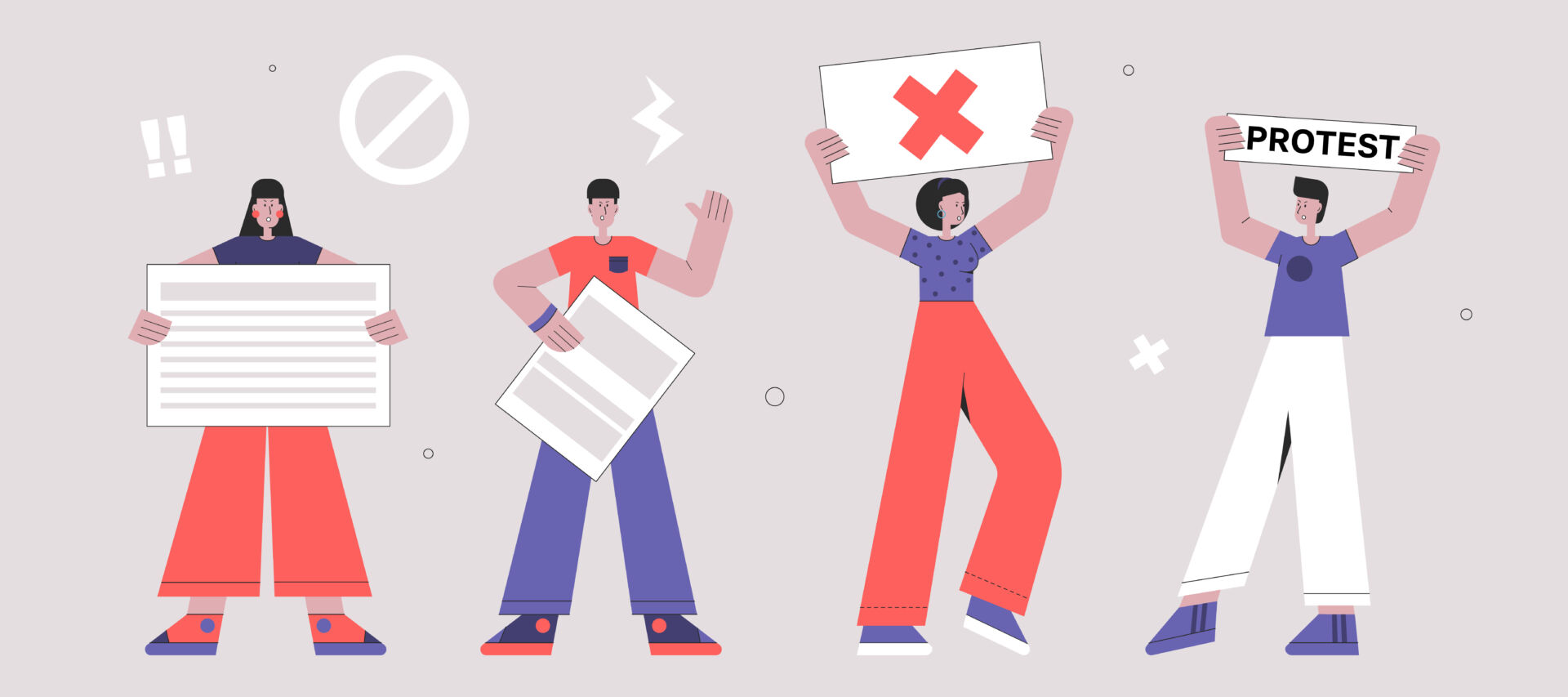First published in The Author (Spring 2018)
Book reviews by trolls are not a new thing. Many will remember the reviews of the work of the historian Orlando Figes whose book was gushingly said to be ‘fascinating, leaving the reader awed, humbled and uplifted’, whereas a rival work on the subject was ‘rubbish, an awful book, pretentious’ and the reviewer ‘wondered why it had been published’.
The reviews were posted anonymously but were later admitted to have been written by Professor Figes or his wife, as his lawyer’s statement later acknowledged. When he was unmasked, damages were paid. It could be shown that one of the denigrated books, which had reached the top 500 in Amazon, had then dropped to 1,600 after the review, ultimately returning to the top 500 when Figes’ role was revealed.
That was back in 2010. Since then, Amazon’s role has only grown, and the role of online reviews has also increased in the era of social media. Human nature has not changed greatly, however; neither have the legal issues involved. A legal remedy for trolling reviews is unfortunately very rare. It is going to be very difficult to bring a claim for libel unless false allegations of fact are made. The disparaging review of the type written by Figes is essentially a matter of comment and as such it will be protected under Section 3 of the Defamation Act 2013 as an expression of honest opinion which an honest person could have held on the basis of facts existing at the time. The defence is only defeated if the claimant can show that the opinion was not genuinely held. That is a fairly formidable mountain to climb, particularly if the reviewer is anonymous or if the reviewer can argue that he or she in fact genuinely held that opinion, however bigoted others might think it.
So what risk do you run if you decide to pan a book in a review? In practice very little, because you benefit from the width of the expression of the honest-opinion defence. There have been cases where restaurant reviewers have been successfully sued but that tends to be because there is some allegation of fact such as that there is a real risk of food poisoning or that the owners are unfit to carry on the business.
There have also been bizarre theatrical cases where unfairly criticised actors have won damages. Charlotte Cornwell, for instance, eventually recovered £11,500 damages for a review in the Sunday People which called her an ugly middle-aged rock star whose bum was too big. The claim succeeded because she could prove malice and the article struck the court as gratuitously unpleasant. Only rarely will you be able to prove malice.
Authors rarely sue in respect of what is written about them. Evelyn Waugh was an exception. He twice successfully sued the writer and journalist Nancy Spain for damages, when she suggested that the sales figures for his books were exaggerated and that he was hopeless as a journalist. Waugh however belongs to a litigious past – and even then apparently he only sued after the Editor of the Daily Express had declined Waugh’s suggestion that he should horse-whip Nancy Spain.
In the present era, if you as the author are on the receiving end of an anonymous review – as it may well be if posted online – you would have to discover who the reviewer was if you wanted to take any legal action. Figes, for example, initially denied involvement and threatened to sue those who suggested otherwise. The website host is likely to know the identity of a reviewer who they permit to post on their site but they are unlikely to disclose that to a complainant without the consent of the poster or a Court Order. Such Orders are known as Norwich Pharmacal Orders, after the leading case on the subject. They can be granted where a claimant can satisfy the court that an actionable wrong has been done to him/her and that the grant of such an Order would enable the wrongdoer to be identified. It does, however, add a significant layer of extra cost to any such claim. In essence you have to persuade the court that you have a claim against the anonymous reviewer and that the website host should be ordered to disclose the poster’s identity. If the online post is defamatory, the ISP will most likely want to take it down once it has been brought to their attention – they will not want to lose the hosting defence the ISP would have under Regulation 19 of the E-Commerce Regulations 2002, where it had been unaware of the libellous content of the post. Once the ISP is put on notice it must act expeditiously to take down the offending material.
An alternative legal remedy might be to claim malicious falsehood, but this is even more difficult to establish than libel. The burden on the claimant is higher and he or she would have to prove that the review included a false statement, that it was published maliciously and that it was calculated to cause the author pecuniary damage.
A further option is to bring a claim under the Protection of Harassment Act 1997. This requires proof of a course of conduct which a person knows or ought to know amounts to harassment of another. On the face of it this seems tailor-made to take action against trolling reviewers, but a high standard of proof is required to establish that the conduct is not merely unattractive or unreasonable but has become oppressive and unacceptable.
The law is unlikely except in the most extreme cases to provide a remedy. Yet the problem can be a very real one if an apparently malevolent reviewer pursues his or her own agenda and repeatedly denigrates the author. This situation can arise with Amazon reviews – and experience shows that Amazon has regrettably little interest in solving the problem. Given the overwhelming strength of Amazon, this is a problem.
Destructive reviews on Amazon have the potential to cause great harm. Take the author who has published 15 books, predominantly on the achievements of members of the British black community. For reasons on which one can only speculate this has attracted the attention of a pseudonymous self-appointed reviewer of his books. Spookily the author has no idea who this person is or why he or possibly she is doing it. Amazon does know – if you want to post reviews you have to establish that you have an account on Amazon where you have spent over £40 (and apparently your Amazon Prime subscription does not count).
This author has attracted a consistent pattern of four and five star reviews. But there is equally consistently a single one- star review for each book from this reviewer, with comments to the effect that the book is a waste of time and money. The author accepts that people are entitled to dislike his books, but what concerns him is the persistence with which the person posts denigratory reviews of books which he does not like – and which logically one would have assumed he would have stopped reading. Reviews also go up extremely quickly leading the author to wonder how much reading the reviewer had actually done.
Amazon’s Guidelines prohibit reviews that are defamatory, harassing, obscene, invasive of privacy or promoting hatred based on ethnicity, gender or sexual orientation and so forth. The reviews must also be helpful and relevant and respect others. The author’s experience has been that his complaints have for the most part been ignored by Amazon or applied inconsistently. Twice a negative review of his latest book has been taken down (for reasons that Amazon did not specify), only for it to pop up a week or so later. That in fact appears to be in breach of Amazon’s Additional Guidelines, which state that if your review is removed or rejected because it does not comply with their Guidelines concerning promotional content you may not submit a review on the same product even if it contains different content. In this author’s case, the re-posted review simply reinstated what had been taken down.
To a multi-billion business such as Amazon this problem may not be of concern. Legitimate negative reviews might become a trolling campaign, however – which would be a cause of great concern to any author who for the most part has only one relatively short shot at selling his or her book. Amazon is the primary market; with power comes responsibility.
Some authors have experienced similar problems with Twitter. Again, you can sue for libellous tweets – what is illegal offline is on the whole illegal online. On occasions such a claim would be struck out if it was so insubstantial as to amount to an abuse of process. If a tweet is fairly widely followed or is retweeted, a claim for libel might well succeed – the more so if it emanated from a widely-read celebrity. This is what happened with Sally Bercow, the Speaker’s wife, Lalit Modi the Indian cricketer, and Katie Hopkins the journalist. In the Modi case damages were £90,000, even though the number of people who saw the tweet was small. In practice it is better to avoid the courts and to try to persuade Twitter to take down the offending tweet. That may be an uphill task as Twitter say they stand for freedom of expression and open dialogue. Their Twitter Rules (part of their Terms of Service) prohibit behaviour that ‘crosses the line into abuse, including behaviour that harasses, intimidates, or uses fear to silence another user’s voice.’ You can report violations but you may not get far. Responding to the tweet to put the matter right may be more effective but it runs the risk of prolonging the original offending tweet.
Given that in reality the law does not provide a viable remedy in such circumstances, the solution one would like to see is for Amazon and Twitter to enforce more effectively and consistently their guidelines and codes of conduct. Justifiably they will say that they do not want to have to deal with myriad authors unhappy at negative reviews. Where there is a breach of their guidelines, however, they must – and they could perfectly easily – ensure that offending material is not reposted. Amazon should be willing to discuss these problems with the Society of Authors to ensure that well-founded complaints about reviews are presented in a form that can be swiftly and consistently resolved. If such complaints are found to be substantiated, Amazon must properly implement their Guidelines so that the offending material is not re-posted.






